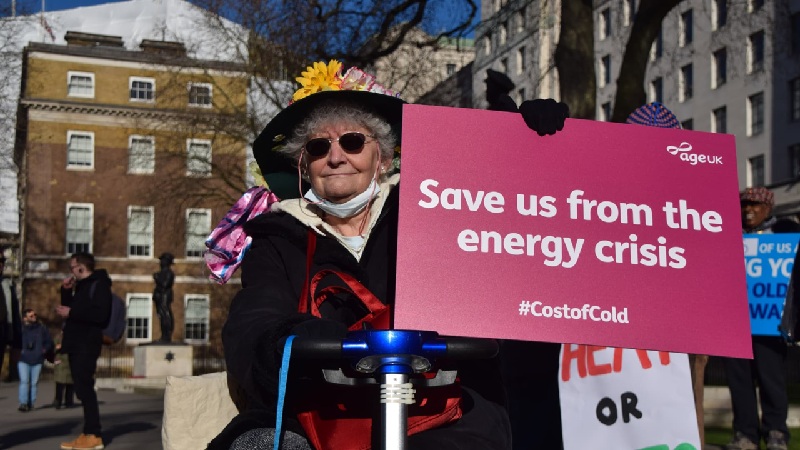The energy crisis in the UK reflects deeper policy failures and political mismanagement, exposing the urgent need for a serious, strategic clean energy transition.
The ongoing energy crisis in the UK has exposed not only vulnerabilities in global supply chains, but also deeper cracks in domestic governance, long-term planning, and energy policy. Rising energy bills, failing suppliers, and increasing public anxiety are not just byproducts of global market pressures—they’re the result of systemic political and policy failures that have stifled the country’s clean energy transition.
At a time when energy security and climate mitigation must go hand-in-hand, the UK government has too often leaned on outdated strategies, short-term fixes, and symbolic gestures rather than bold, structural reform. The consequences are being felt across households, industries, and the political landscape. This crisis is a signal that the status quo is no longer sustainable. But it’s also an opportunity—if leaders choose to act with foresight, honesty, and urgency.
What is the clean energy transition?
The clean energy transition is the shift from polluting fossil fuels—like coal, oil, and natural gas—to cleaner, low- or zero-carbon energy sources such as wind, solar, hydro, and nuclear power. It’s not a vague environmental ideal but a globally agreed target, embedded in the Paris Agreement, which aims to limit global warming to well below 2°C relative to pre-industrial levels.
This transition isn’t just about replacing coal plants with solar farms. It involves reshaping entire systems: modernizing power grids, electrifying transport, scaling up battery storage, and embedding energy efficiency into buildings, industries, and everyday life. The International Energy Agency has said that to meet 2050 climate targets, 80% or more of global electricity must come from low-carbon sources. That requires not just technological change but massive political will.
Historically, energy transitions have happened before—wood gave way to coal, and coal to oil. But this one is different. It’s happening under the shadow of an ecological emergency and a narrowing window to act. Fortunately, the last decade has shown remarkable cost reductions: solar photovoltaic prices dropped by 80%, wind power by 60%. These gains could be transformational—if backed by smart and consistent policy.
But in the UK, policy has often been inconsistent, reactive, and fragmented. What should be a strategic, long-term national transformation has too often become a casualty of short-term political expediency.
The instability of energy supply in the UK and the world
The energy crisis in the UK isn’t just about global shocks—it’s about domestic vulnerability. Over the past year, wholesale energy prices have spiked dramatically. A cold winter depleted gas stores across Europe. Post-COVID industrial rebounds in Asia drove up demand. Tankers of liquefied natural gas headed to the highest bidders—often not the UK. Gas-fired power stations, which generate around 50% of UK electricity, faced high input costs. Simultaneously, nuclear reactor outages and the shutdown of a major power cable from France made things worse.
The UK also experienced one of its least windy summers since the 1960s, cutting wind power output. The government had no effective contingency for this. Instead of diversified, resilient energy systems, the UK had leaned heavily on imported fossil fuels and a fragile energy supply chain.
This wasn’t unforeseeable. Experts have long warned about the risks of over-dependence on gas and the lack of energy storage capacity. Yet governments continued to underinvest in domestic resilience. Years ago, the UK shut down its largest natural gas storage facility in the name of market efficiency. That decision now looks dangerously naïve.
As prices soared, smaller energy suppliers collapsed. Households faced impossible bills. Politicians scrambled for explanations—but many of the root causes lie in Westminster, not just in Moscow or Beijing.
While other countries accelerated renewable investments and grid modernization, the UK government often chose ambiguity. One moment, they announced net-zero plans; the next, they flirted with reviving North Sea oil and gas. Shale gas re-entered the conversation, despite experts and even government ministers acknowledging it would take years to bring online and wouldn’t solve immediate problems. As with many recent policies—like deporting asylum seekers to Rwanda—it was more political theatre than serious governance.
UK’s clean energy goals remain largely aspirational in practice. Instead of a stable, phased roadmap, we’ve had reversals on subsidies, abrupt policy shifts, and a lack of industrial coordination. Despite the urgency of the climate crisis, the government has often failed to match words with action.
UK’s international stance – Support for India’s clean energy transition
Ironically, while the UK has stumbled domestically, it has shown stronger leadership internationally—especially in its cooperation with India. The partnership between the two nations highlights what strategic climate collaboration can look like. During COP26 in Glasgow, India committed to a net-zero target by 2070 and to sourcing 50% of its energy from renewables by 2030. The UK pledged to support this effort, not just diplomatically, but through investment and technology.
The two countries launched initiatives like the Green Grids Initiative and the “One Sun, One World, One Grid” project, aiming to build cross-border energy infrastructure and foster renewable innovation. The UK also backed India in climate resilience planning and electric vehicle development.
COP26 itself, though not flawless, was a major step in global climate diplomacy. The Glasgow Climate Pact set a framework for progress, and the presence of leaders like Prime Minister Modi showed a commitment to global cooperation.
So, why the disconnect? If the UK can support large-scale clean energy progress abroad, why does it falter at home? The answer lies in political inconsistency and the lack of a unified domestic strategy. While the UK is willing to fund international ambition, its own energy sector remains subject to market whims, regulatory gaps, and ideological detours.
Politics, not markets, are the problem
This energy crisis is not just a market failure—it’s a political one. Markets operate within the frameworks set by governments. For decades, UK energy policy has been fragmented between climate ambitions and market liberalization. Regulatory regimes prioritized competition over coordination, price over resilience, and ideology over infrastructure.
Time and again, energy efficiency programs have been launched, only to be cut short. The Green Homes Grant, for instance, was cancelled before it could make a serious dent in household emissions. Home insulation—a basic, cost-saving, job-creating policy—has never been properly scaled.
Fossil fuel subsidies persist, while renewables face planning delays and grid access hurdles. The government’s own net-zero strategy lacks binding interim targets. Industry leaders have called for clearer guidance, more stable investment environments, and fewer policy U-turns.
In many ways, the UK’s energy crisis is the result of political denialism—an unwillingness to accept that the future of energy cannot be left to market forces alone. It must be led with intention, regulation, and a recognition that energy is not just a commodity, but a public good.
Conclusion
The energy crisis in the UK has become a litmus test for political responsibility. It reveals how years of inconsistent policymaking, deregulation, and symbolic politics have left the country vulnerable. While global events have played a role, the most lasting damage has been self-inflicted—through neglect, shortsightedness, and an unwillingness to commit to a bold, coordinated clean energy future.
This must be a turning point. Not just for pricing reform or new infrastructure projects, but for a complete rethinking of energy policy. We need leadership that treats energy security, climate action, and social justice as interlinked imperatives.
A just, inclusive, and resilient clean energy transition is not just desirable—it’s necessary. And it will only be possible if the UK replaces political gimmicks with long-term strategy, honest communication, and policy grounded in the public interest. The tools are there. What remains to be seen is whether the political will exists to use them.
Source: Qatarajel




